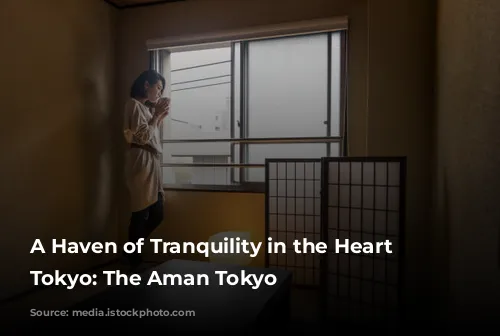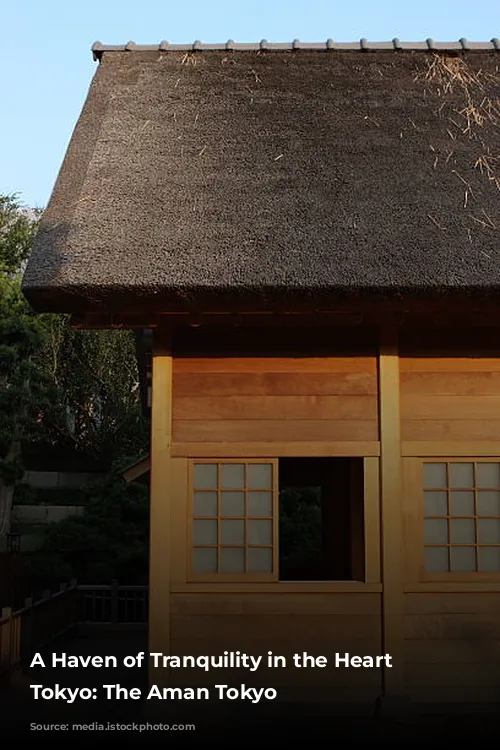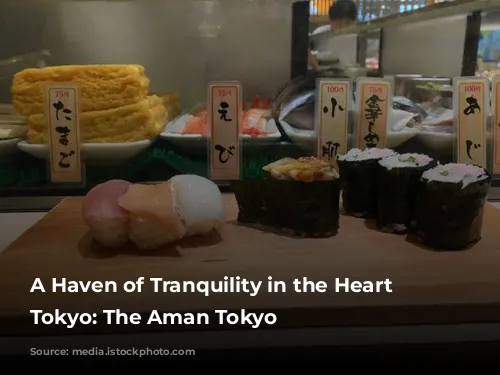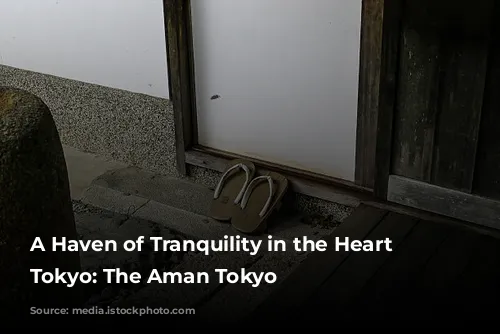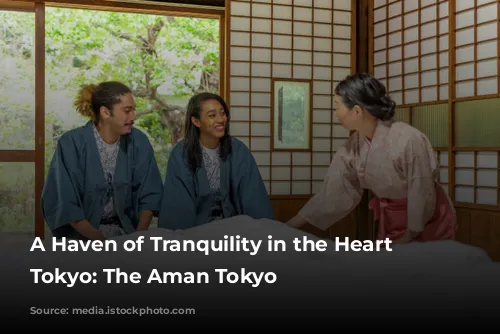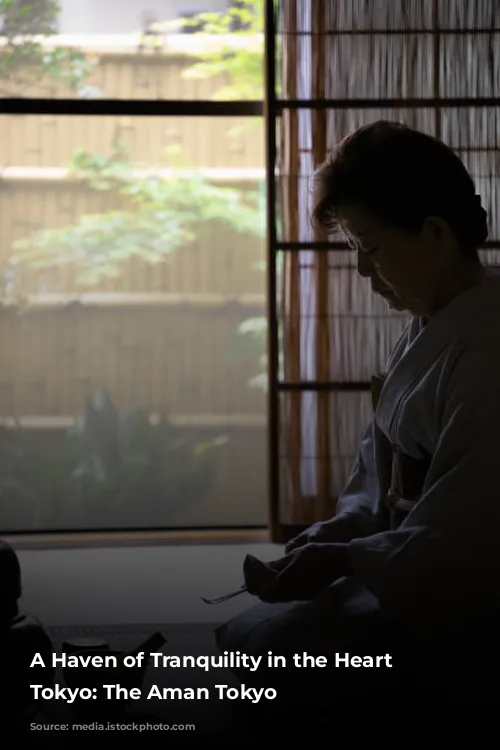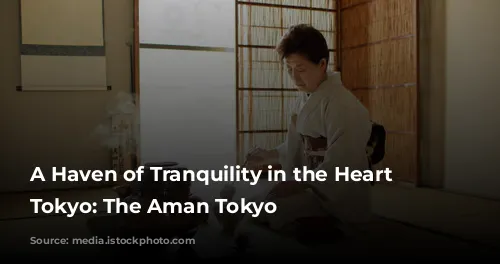The Aman Tokyo, a sanctuary of peace and sophistication, rises majestically in the heart of bustling Tokyo. This luxurious hotel, designed by Kerry Hill Architects, is more than just a place to stay. It’s a harmonious blend of contemporary architecture, traditional Japanese design, and a deep respect for nature, creating an unparalleled experience for its guests.
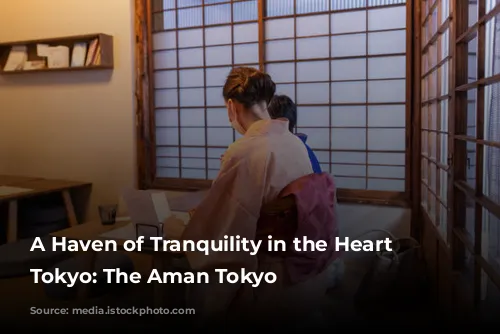
A Fusion of Tradition and Modernity
The Aman Tokyo embodies the minimalist approach that defines the Aman brand’s philosophy. Its design seamlessly integrates traditional Japanese materials and modern technology, resulting in a serene retreat amidst the city’s vibrant energy. The hotel’s architectural inspiration stems from traditional Japanese ryokans, inns known for their peaceful ambiance and connection to nature.
The exterior facade, clad in natural stone, blends harmoniously with the urban landscape, offering a sense of calm and privacy. Large windows and internal courtyards bathe the interior in natural light, creating a welcoming and tranquil atmosphere. The use of wood, stone, and washi paper adds warmth and authenticity to the spaces, reflecting the minimalist aesthetic of Japanese architecture.
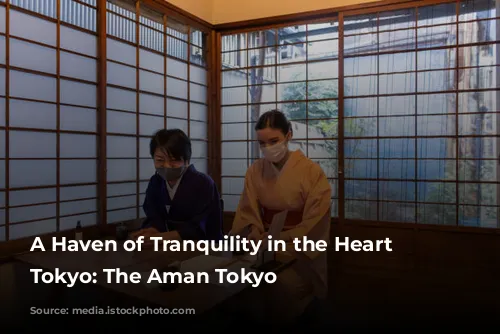
An Architectural Masterpiece
The Aman Tokyo’s design is more than just aesthetically pleasing; it’s a testament to the power of architecture to enhance well-being. Situated in the upper floors of Otemachi Tower, the hotel offers panoramic views of the city, including Mount Fuji on clear days.
Inspired by traditional Japanese homes and the concept of Zen simplicity, the design maximizes natural light, creating a feeling of spaciousness. High ceilings and large windows frame breathtaking vistas, while wide corridors and open spaces promote a seamless flow between public and private areas.
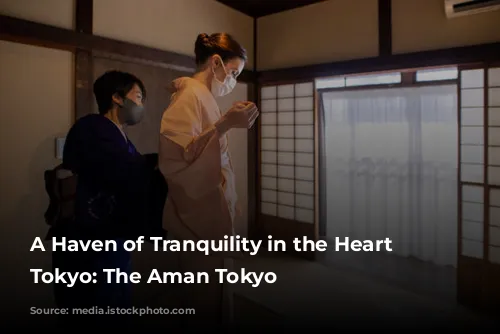
A Celebration of Japanese Materials
The Aman Tokyo’s commitment to sustainable materials is evident in its choice of indigenous materials. Marble, Japanese cypress wood (hinoki), and rice paper (shoji) are used throughout the hotel, creating a warm and inviting atmosphere. These materials are not only aesthetically pleasing but also connect the hotel with Japan’s rich cultural heritage.
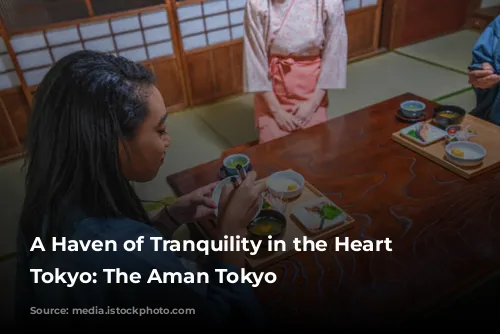
A Sanctuary of Tranquility
Despite its location within a bustling metropolis, the Aman Tokyo offers its guests a haven of tranquillity. The building’s architecture, with its emphasis on clean lines and simple geometric shapes, perfectly integrates with the Tokyo skyline.
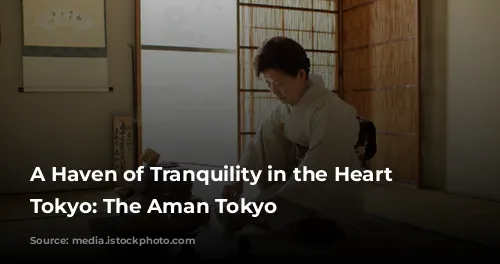
Interior Design: A Reflection of the Architecture
The interior design of the Aman Tokyo is a natural extension of its architecture. Every detail, from the minimalistic furniture to the ikebana (Japanese flower arrangements), reflects the hotel’s commitment to harmony and simplicity.
The lobby greets guests with a vast, open space featuring high ceilings reminiscent of a Japanese temple. A large ikebana stands as the focal point, symbolizing the fleeting beauty and harmony with nature. The minimalist furniture and neutral tones create an atmosphere of calm and contemplation.
The hotel’s rooms are designed as private sanctuaries, offering an escape from the city’s hustle and bustle. Traditional materials, such as hinoki bathtubs and traditional futons, are combined with modern comforts, including room-automation systems and next-generation technology, creating a truly unique experience.
The same minimalist design approach is evident in all common areas, including the restaurants, spa, and pool. A neutral color palette and the use of natural colors create visual and sensorial continuity throughout the hotel. The pool offers breathtaking views of the city, while the spa provides a serene atmosphere with treatments inspired by Japanese traditions.
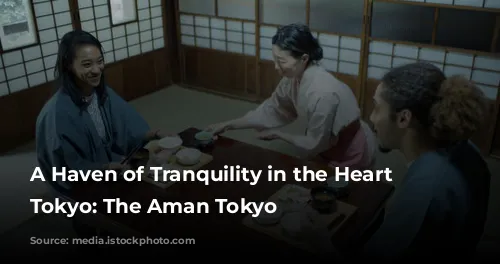
Sustainability and Energy Efficiency: A Key Focus
The Aman Tokyo’s commitment to sustainability extends beyond the use of materials. The hotel incorporates advanced air-conditioning systems to efficiently regulate its temperature, minimizing energy consumption. The use of LED lighting further reduces the hotel’s electrical footprint.
Recognizing the importance of water conservation, the Aman Tokyo implements water-recycling systems and water-saving technologies. The hinoki bathtubs are designed to use minimal water without compromising the luxurious experience.
The hotel prioritizes the use of local and sustainable materials. Hinoki wood, used extensively throughout the hotel, comes from responsibly managed forests. Rice paper and other traditional materials are chosen for their low environmental impact.
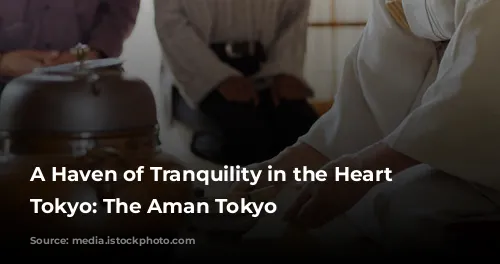
Conclusion: A Model for Luxury Hospitality
The Aman Tokyo is more than just a hotel; it’s a testament to the power of design to create a harmonious and meaningful experience. It offers a compelling example of how to combine tradition and modernity, creating a space that is both functional and emotionally resonant.
The Aman Tokyo is a true inspiration, demonstrating how design and architecture can go beyond aesthetics. It connects guests to the local culture and environment, setting new standards for luxury and comfort in the hospitality industry.
